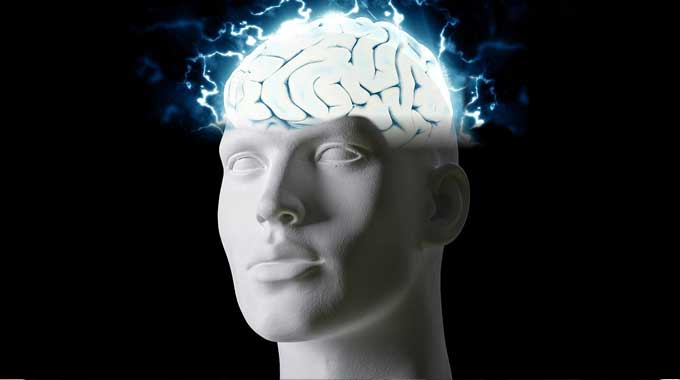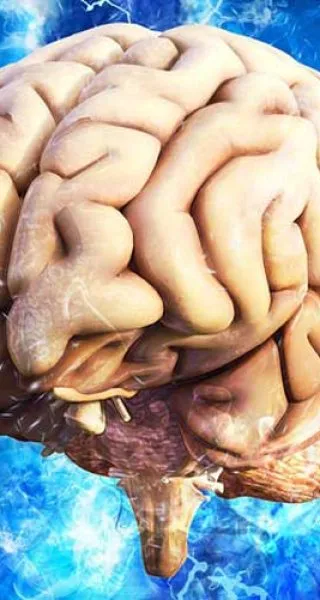Transcranial magnetic stimulation (TMS) is an innovative, FDA-cleared treatment that can be a lifeline for individuals who haven’t responded to other types of treatment.
- What Is Tms Therapy
- How Does Tms Therapy Work
- What Conditions Can Transcranial Magnetic Stimulation Tms Therapy Treat
- What Are The Side Effects Of Transcranial Magnetic Stimulation Tms Therapy
- Does Tms Require Surgery
- Tms Therapy During Pregnancy
- How Long Is A Course Of Tms Therapy
- Who Cannot Receive Tms Therapy
- How Effective Is Tms Treatment
- Will My Insurance Cover Tms Treatment
- Is Tms Therapy Right For Me
- GIA Chicago The Experts In Tms Therapy
If you’ve been wondering, “is TMS right for me?”, it’s important to understand a little more about the treatment. This blog offers some useful information about how TMS works, the conditions that it treats, and it could support your recovery journey.
What Is TMS Therapy?
Transcranial magnetic stimulation (TMS) therapy is a groundbreaking therapy that uses a magnetic field to gently stimulate certain brain regions, leading to pronounced changes in mood and behavior. FDA-cleared for treatment-resistant major depressive disorder in 2008, TMS therapy is a non-invasive and painless procedure with few side effects. Research has shown that transcranial magnetic stimulation therapy can effectively a variety of mental health conditions, including obsessive-compulsive disorder, post-traumatic stress disorder, and addiction.
How Does TMS Therapy Work?
Brain imaging studies have shown that people living with mental health conditions like major depression often have reduced or increased brain activity in certain regions of nerve cells. These imbalances can have a pronounced effect on mood and behavior, impacting important functions like emotion, motivation, alertness, and wakefulness.
During a TMS session, a TMS physician uses an electromagnetic coil to generate a magnetic field over the client’s scalp. The magnetic field passes seamlessly through the client’s scalp, reaching the target brain cells beneath. It induces a tiny electrical current in each cell, stimulating its activity and affecting its functions.

What Conditions Can Transcranial Magnetic Stimulation (TMS) Therapy Treat?
Research has already shown that TMS can treat a range of mental health conditions. In the United States, it is FDA-approved for individuals diagnosed with:
- Major depressive disorder
- Obsessive-compulsive disorder (OCD)
- Anxiety symptoms in major depression
- Smoking cessation
In the European Economic Area, it has also been cleared by the CE for:
- Alzheimer’s disease
- Bipolar disorder
- Chronic pain
- Parkinson’s disease
- Posttraumatic stress disorder (PTSD)
- Schizophrenia (negative symptoms)
- Stroke
- Multiple sclerosis
TMS is an innovative, relatively new treatment and scientists are continually developing its technologies and testing new applications. Since most, if not all, mental health conditions appear to involve long-term changes in brain activity and function in some pathways, TMS has the potential to treat an even wider selection of mental disorders and concerns.
If you are living with a mental health condition that isn’t listed above, your healthcare provider may still be able to offer you transcranial magnetic stimulation (TMS) therapy. You can speak to your doctor or another mental health professional about whether TMS could be right for you.
What Are The Side-Effects of Transcranial Magnetic Stimulation (TMS) Therapy?
TMS therapy has few side effects and avoids the systematic side effects of antidepressant medication, such as weight loss and low sex drive. If you’re unable to tolerate the side effects of medication or prefer not to take it, TMS may represent an alternative solution.
Common side effects of TMS treatment include:
- Temporary mild headaches
- Scalp discomfort
Clients usually experience these side effects during the first week of treatment and often find that they reduce as treatment progresses. Your TMS therapist may be able to reduce discomfort by adjusting the position and intensity of the magnetic coil.
More rarely, some people experience further side effects, such as:
- Muscle twitching
- Jaw pain
Again, these effects may be alleviated by adjusting the settings of the TMS machine.
TMS treatment comes with a very small risk of seizure. However, this risk is comparable to or less than other depression treatments, including antidepressant medication.
Does TMS Require Surgery?
TMS is a non-invasive procedure, meaning it doesn’t require surgery or the breaking of the skin on the scalp. It also does not involve anesthetic, and you remain conscious throughout the treatment. You can resume normal activities immediately after a treatment session and drive to and from the center.
TMS Therapy During Pregnancy
TMS therapy can also be a lifeline for pregnant women living with depression who are concerned by the risks of anti-depressant medication on their babies. While large-scale, longitudinal studies of TMS therapy for pregnant women are lacking, studies have found that the treatment is well-tolerated with no significant adverse effects. You should always speak with a mental health professional before beginning a course in TMS therapy.
How Long is a Course of TMS Therapy?
A standard course of TMS therapy involves 30 – 36 treatment sessions of about 20-40 minutes, over four to six weeks. Theta-burst therapy, a newer form of TMS treatment, involves sessions of only 3-10 minutes in length. Most patients start to notice improvements in depressive symptoms after 8 – 10 sessions (within the first two weeks of treatment), although some may wait longer to see its effects.
Research has found that the frequency of TMS sessions doesn’t have a significant impact on the effectiveness of the treatment. A 2018 study found that attending twice-daily sessions was just as, if not more, effective than attending daily sessions for double the time. They also found that missing occasional TMS sessions had no negative effect on treatment outcomes.
This flexibility makes TMS a suitable option for clients who have busy schedules or other responsibilities to balance while they attend treatment. Your mental health provider may work with you to determine a treatment plan and schedule that suits your needs.
Who Cannot Receive TMS Therapy?
There are some groups of people who cannot safely receive TMS therapy or face increased risks from the treatment. These include individuals who:
- have any implanted metallic devices in your brain or neck, such as cochlear implants, aneurysm clips, or medication pumps
- have any non-removable metallic objects in your head, face, ears, or neck, including body jewelry or tattoos with magnetic ink
- have a history of epilepsy
- have a vascular, traumatic, tumoral, infectious, or metabolic lesion of the brain
- take medication that puts you at a higher risk of seizures
- live with a substance use disorder
- have sleeping difficulties
Pregnant and post-partum women should speak with a doctor before receiving TMS therapy.
How Effective Is TMS Treatment?
TMS therapy has high success rates amongst individuals with major depressive disorder (MDD) and other mental health conditions. Studies have found that it reduces depression symptoms amongst individuals with treatment-resistant MDD by 50-60%, and leads to full remission in about 1/3 of people. The effects of TMS therapy can last for over a year after treatment and may be extended by shorter maintenance courses.
The American Psychiatric Association has recommended TMS for treatment-resistant depression since 2010.
Will My Insurance Cover TMS Treatment?
Many insurance companies now cover TMS therapy under certain conditions, particularly if you have received a diagnosis of major depressive disorder. Most insurance plans require that you have tried two different types of antidepressants without noticing a satisfactory improvement in depressive symptoms for them to cover TMS treatment. However, every insurance provider is different, and it is important that you check your policy to know what they will cover.
Is TMS Therapy Right for Me?
TMS is an exciting and innovative treatment that has been a lifeline for individuals across the globe who have been unable to find relief from depression and other symptoms in standard treatments. In particular, TMS may be right for you if:
- you still experience symptoms of depression after taking antidepressants
- you cannot tolerate or want to avoid the side effects of medication
- you haven’t responded to standard treatments for your condition
- you want to see improvements quickly (for some people, talk therapy can be a longer process)
Mental health providers usually offer TMS therapy alongside other treatment options as part of a holistic treatment plan that meets each client’s multiple needs. These may include:
- Talk therapy, like cognitive-behavioral therapy
- Medications
- Complementary approaches such as yoga or meditation
If you’re interested in TMS therapy, it’s a good idea to talk through your options with a mental health professional to receive expert advice and guidance. Many centers that offer TMS therapy may provide a free consultation service to help you make the right decision for your needs.

GIA Chicago: the Experts in TMS Therapy
GIA Chicago is a pioneering mental wellness treatment center that specializes in TMS therapy. Our expert team includes world leaders in the field, with an unrivaled understanding of the treatment and its therapeutic applications. We apply our exceptional knowledge and experience to your recovery journey, offering you the best chance of reaching your recovery goals.
Our treatment programs are individualized from beginning to end, providing tailored, comprehensive, and compassionate support to every client. We’ll design your treatment plan around your schedule, ensuring you can continue to fulfill any work and home obligations throughout your recovery journey.
If you are interested in TMS therapy or other treatment approaches proven to support lasting mental wellness, contact us today. We’ll help you return to the best version of yourself.





